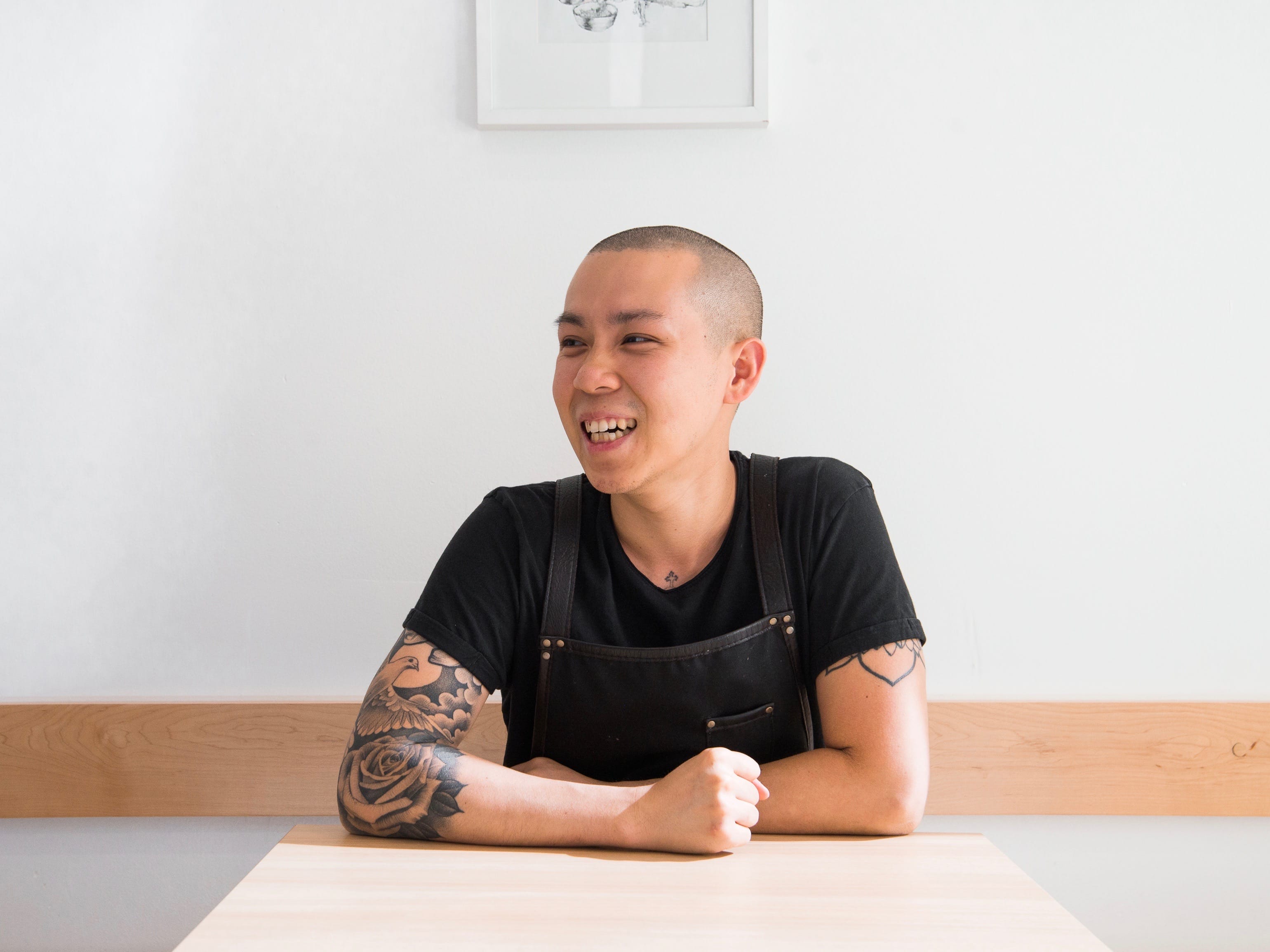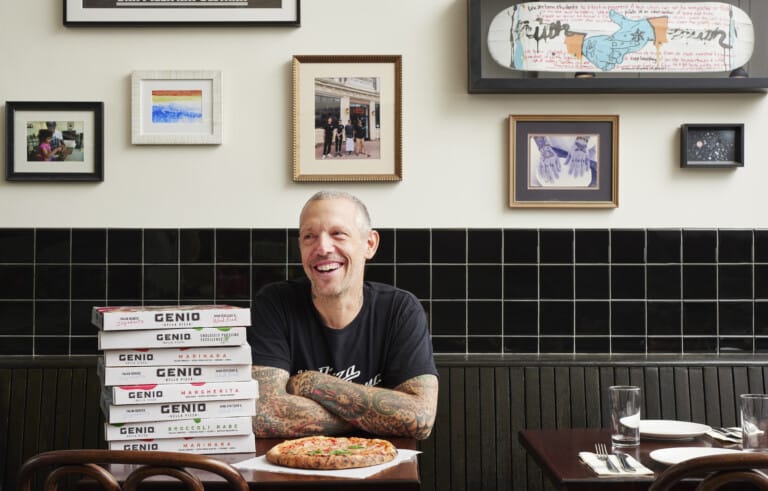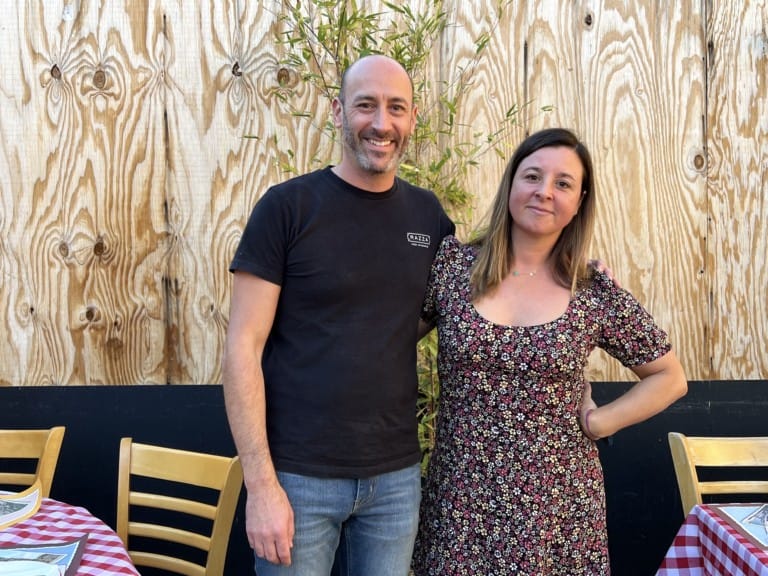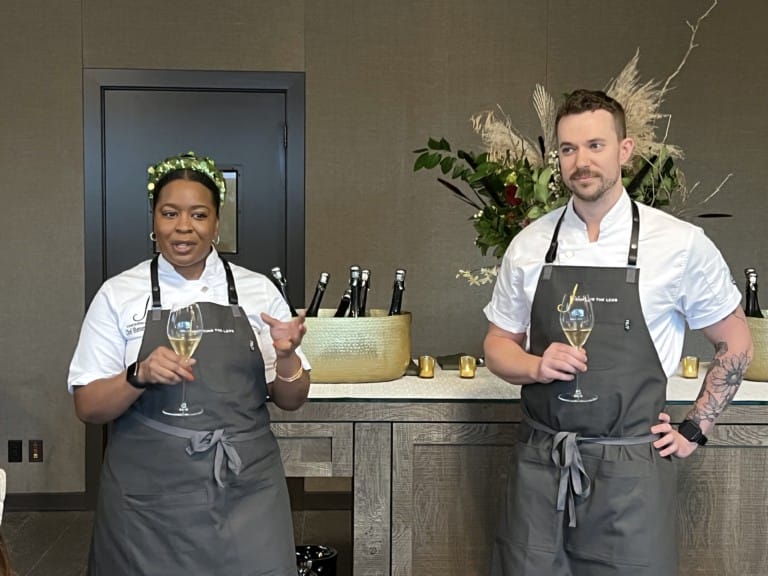Jon Yao grew up in the eastern San Gabriel Valley town of Walnut and has channeled Taiwanese-American upbringing and uniquely Angeleno influences into his personal cooking. He launched tiny Kato in the back corner of a West LA strip mall in 2016, but his vision still resonated, finding an audience with diners and media and earning national accolades. Now Yao’s a 2018 Food & Wine Best New Chef and member of the 2019 Forbes 30 Under 30 Class. Attention has grown considerably, but the space remains small, and the team’s still hampered by having no beer & wine license. Given those constraints, Yao anticipates an evolution to Kato 2.0 in another location and even tested possible menu items during a 10-night December pop-up in Taipei. I recently traded e-mails with Yao, who shared thoughtful insights into his approach.
Joshua Lurie: What was the very first dish that you remember cooking, and how did it turn out?
Jon Yao: I was obsessed with cooking eggs when I was really young, I think that obsession spurred my interest in cooking. When I was young my parents worked late so I made myself eggs a lot. I remember trying to make an over easy egg with crispy edges, the type of egg you’d get on Taiwanese noodle dishes.
JL: What are the criteria for a dish to make Kato’s menu?
JY: We’re inspired by several factors. For me the most important being nostalgia. We try to capture specific moments and sensations in our formative years. For example, we have a dish that is based on the specific moment of dripping black vinegar into a Taiwanese fish paste soup. The diner may or may not have had that experience, but we try to convey that feeling through food. With a cuisine like Taiwanese food that most Angelenos are unfamiliar with, we find it easier to convey feeling than to explain cultural context in the 20 seconds prefacing a dish.
JL: How do you balance innovation with authenticity in your cooking?
JY: I grew up in a suburb 20-some miles east of Los Angeles in a neighborhood that really exemplifies the melting pot of cultures in LA. I didn’t grow up just eating Taiwanese and Chinese foods. Being a 1st generation Asian American growing up in this circumstance, I feel that my perspective is fairly new at this juncture in time. I feel like for the time being, what’s authentic to me naturally allows for innovation in our food.
JL: Tell me the story about the most recent dish you created. What was your inspiration and approach?
JY: At Kato, we not only draw inspiration from Taiwan, but also from Angeleno culture. We pay homage to the different cultures and cuisines, but respectfully distill them through the Kato lens. I think one of our most recent dishes illustrates that fact well. To me, this dish became a tangible definition of Kato’s message. We started with the idea of doing a sashimi course. We had been doing the smoked crudo with black charred scallion sauce for a while already that people had been calling it our “signature dish,” and our Instagram feeds were so polluted with pictures of it. Now we try to veer away from anything staying on the menu so long that it comes to that point (also because of that dish we now dim our lights so dark that people aren’t able to take adequate pictures). The dish is composed of kelp cured amberjack, charred chili jam, tomato dashi, and Thai basil. Each element is Eastern technique and when tasted on its own, taste of that as well. We always ask guests to taste as they go, and naturally as they delve deeper into the dish, it mixes and starts to feel like aguachile and ceviche.
JL: What are some keys to a building a successful tasting menu at this point, given your setting and clientele, plus modern tastes and attention spans?
JY: Our tasting menu is heavily influenced by my eating habits and preferences. Portion size and speed are very important to us. Our goal is to deliver bites that evoke strong feelings and create lasting memories. In our current space, we are unable to serve an accompanying wine pairing so food is the sole source of engagement. Our tasting menu is usually 10-12 courses, but you could potentially leave within an hour-and-a-half. The lack of alcohol bothers me a lot and we plan on moving to a new space, but we’ve learned to accept it as a blessing. No pairing for some diners means they are more focused and introspective about what they’re eating, hopefully they don’t miss the wine at all. I also think how our food is served and plated is very direct, there is no question on how to eat the food or compose a bite, it is served exactly how it should be eaten.
JL: What are some misconceptions about Taiwanese cuisine that you’ve experienced and would like to address?
JY: There isn’t a heavy use of acidic elements in Taiwanese food. Dishes are often balanced with sweetness, preserved components that layer salt, fermented items and gelatinous or gooey textures. I grew up with these things and naturally it makes its way into my cuisine, but it’s not something that Angelenos necessarily have interaction with. If you haven’t had much Taiwanese or Chinese food, you don’t have context to use a reference. So when you experience these dishes and components at Kato, we take it as a chance to make it an educational moment and share what Taiwanese food is. It’s definitely a risk going against what’s expected but I think it’s important for us to do so and share what Taiwanese food. It’s important to me to accurately represent Taiwanese culture in Los Angeles so I do my best to not dilute our Taiwanese dishes and incorporate these techniques into our cuisine at Kato.
JL: In what ways did your life and customer base change after Food & Wine named you a Best New Chef?
JY: I never expected to receive any accolades at Kato. I just sought to do right by our staff and make sure they were always taken care of. But now that we have received them, I see it as a way to more adequately satiate the needs of everyone at the restaurant. We’ve been able to participate in a lot more opportunities now and I hope that it paves the way for us to expand and for our staff to expand their skill sets and creativity. We do hope that the award allows us Kato 2.0 in the near future. The award definitely created an expectation within diners for what they wanted to experience. I think that’s a strong motivator for us to stay creative. It pushes us to surpass our boundaries everyday.
JL: What dishes would be on the table for a dream meal from your repertoire? Also, which people would join you at the table?
JY: We recently did a two-week pop up in Taipei and we did dishes that we would hypothetically have at our next restaurant. I think it was good to see what we could do given adequate resources. I would serve that menu for sure. My grandparents from both sides of the family passed away. I was never able to tell my grandfather that I wanted to pursue a culinary career because I was scared he wouldn’t approve. I would love to be able to cook for all my grandparents.
JL: Who else do you look to in the restaurant industry for inspiration, guidance, and advice?
JY: When I started working at Kato, it was just a means to save money to work overseas. What started as a two-month tenure has now become almost three years and counting. I entered the LA restaurant industry with a novice’s mindset and I’ve sought out help from and observed as many people that I’ve come in contact with. It’d be unfair for me to just list a few that have helped us grow along the way so I’d like to thank everyone who has ever contributed to Kato, whether it be large or small. I’m really thankful that we’ve been able to sustain Kato as long as we have so I’m also thankful for the dining public for giving Taiwanese food a chance. All the writers and critics who even bothered coming into our strip mall to give us the time of day, I thank you so much. You’ve all sustained our restaurant families as well as our ones at home. Our staff inspires me every day, inside and outside of the kitchen, they are the most humble and down to Earth group I’ve ever worked in a restaurant with. They drive me and I hope that the second iteration of Kato will be able to fulfill their needs.









Leave a Comment